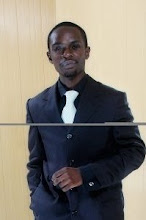There has been some report in Nigeria on talk show host Mo Abudu and her partnership with the Lagos state government in some charity benefit. I have included below my comment which I sent to NEXT newspapers:
It appears I am revisiting an issue which should be dead and buried by now but as an admirer of Mo Abudu. Perhaps that’s the reason why the debate over the street children project (involving her Inspire Africa foundation, UNICEF and the Lagos State government ) is particularly bothersome.
The issue here is not whether the allegations made against her and her foundation in the media (and fueled by word of mouth) are true or not. That’s beside the point. For rumors to spread, they do not have be truths or half truths at that. Life is unfair, at least in that sense. As a matter of fact, the important ingredient driving a story in the society’s consciousness is the good old conflict. And that trumps truth any day of the week.
Am no expert but I once read somewhere that the spread of rumors is proportional to: (a) paucity of information on the issue at hand and (b) importance/relevance of the issue to the populace in which the rumor spreads. Mitigate any or both of these two factors and you may be unto staving its spread.
To the best of my knowledge, the first factor was addressed to a degree in this publication a week ago in the form of a paid advert by the Inspire Africa foundation stating their side of the story. But this was a good two weeks after the allegations were reported in the same publication whereas what you do within the first 24 to 48 hours may make or break your case with the public. A week or so later may be well too late.
Also these reports were made by perceived third parties (the media and commentators). Readers are especially credible independent third parties with nothing to gain or lose for sharing their opinions on issues. Now that would be tough to beat.
It is worthy of note that a recurring theme in the responses of readers to the report was “transparency” or the lack of it by the foundation. Whether real or imagined, I fear that for Ms Abudu to retain her coveted position with the public, this must be addressed soon.
Admittedly this is not a PR disaster of epic proportions. I hope it doesn’t however impact negatively on the foundations future projects.




